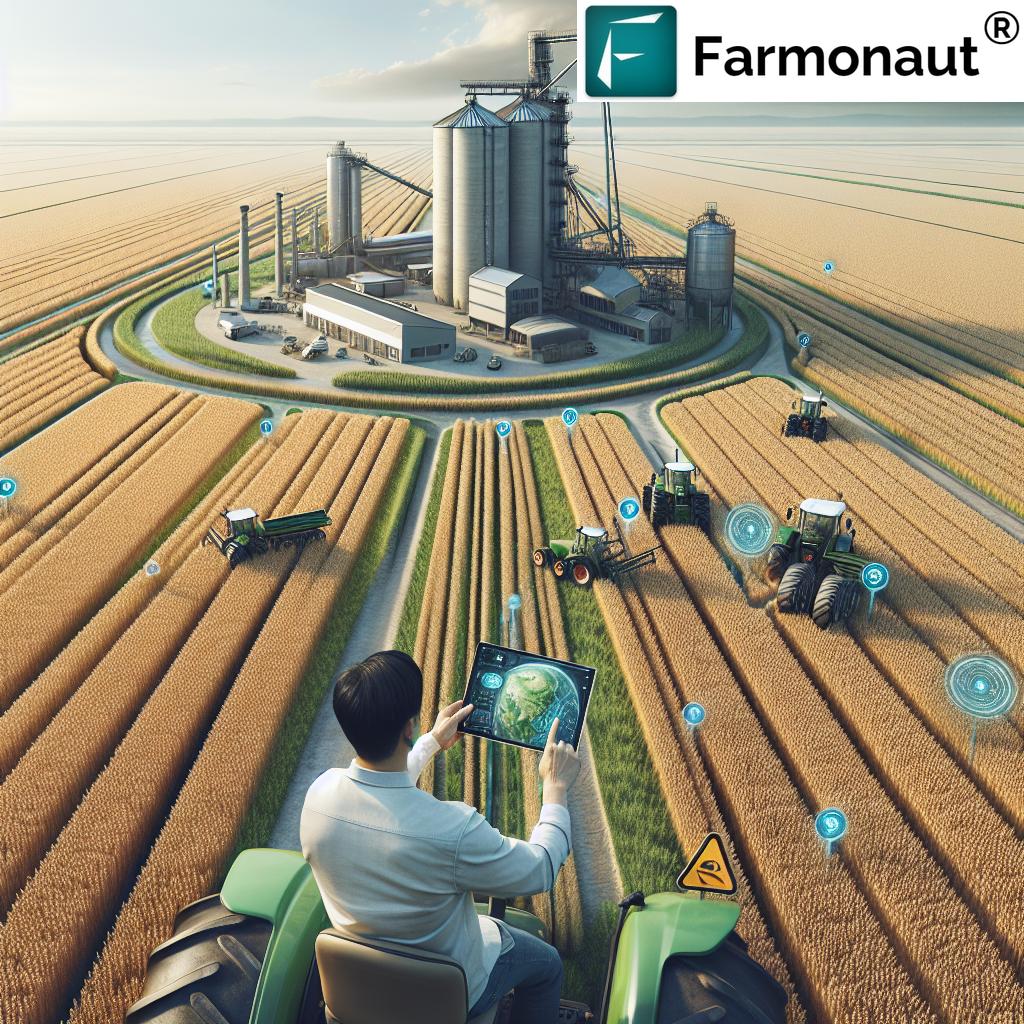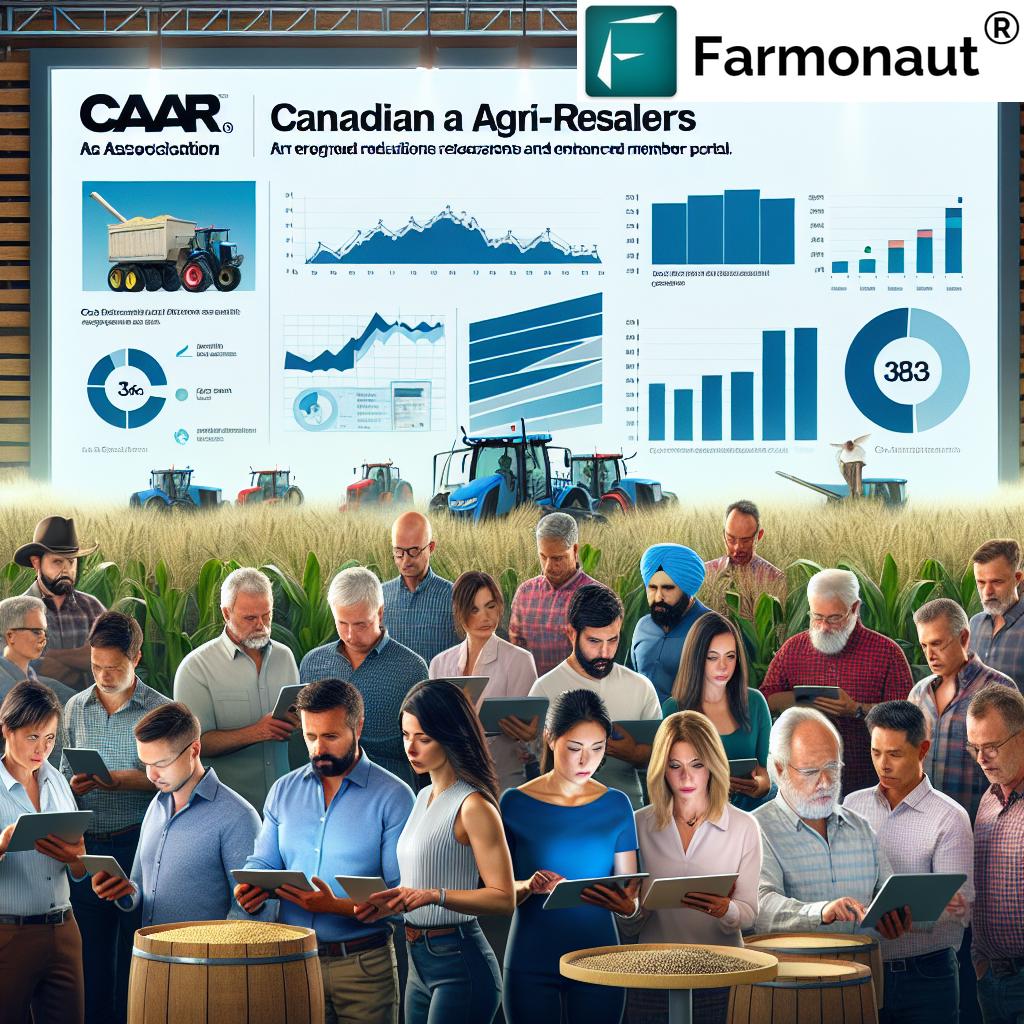Revolutionizing Flour: Millers Forge Powerful Partnerships for Sustainable Wheat and Reduced Emissions

In a groundbreaking shift within the food supply chain, flour millers are stepping up to meet the growing consumer demand for sustainably produced food and beverages. This movement has sparked a wave of powerful sustainability partnerships that are reshaping the flour milling industry and its approach to sustainable wheat production.
The Rise of Sustainable Flour Partnerships
KANSAS CITY, MISSOURI, US — The concept of sustainable wheat flour partnerships is not entirely new, but it has gained significant momentum in recent years. Flour millers have long offered various services to their customers, from quality assurance to risk management. However, the current focus on sustainability has elevated these relationships to a new level of collaboration and innovation.
Tedd Kruse, president of ADM Milling & Baking Solutions and the newly elected president of the North American Millers’ Association, shared insights into this evolution in a recent interview with Milling & Baking News. Kruse drew parallels between the current sustainability drive and past industry challenges, such as the FDA ban on partially hydrogenated oils.
“It’s what we see with sustainability and regenerative agriculture,” Kruse explained. “You have the pull coming from the consumer and others with the food manufacturers saying, ‘How am I going to do it?’ You’re going to do it by partnering with an ADM, with a Bunge, with a Cargill, whoever it might be, and then you put together a whole regen program in your supply network.”
Regenerative Agriculture in Milling: A Game-Changer
Regenerative agriculture in milling is becoming a cornerstone of these sustainability initiatives. This approach focuses on:
- Enhancing soil health
- Reducing greenhouse gas emissions
- Improving water management
- Promoting biodiversity
Major players in the industry, including ADM, Ardent Mills, and Grain Craft, have announced significant programs aimed at implementing regenerative practices across their supply chains. These initiatives span multiple geographic regions to ensure a diverse and sustainable supply of all wheat classes.

Reducing Emissions in Flour Production
A key focus of these partnerships is reducing emissions in flour production. This goal aligns with the public pledges made by many food companies to lower their water usage and greenhouse gas emissions. To achieve this, millers are working closely with farmers to implement practices that sequester carbon and reduce the overall environmental impact of wheat farming.
For those interested in monitoring agricultural practices and their impact on emissions, Farmonaut’s satellite-based monitoring solutions offer valuable insights:
Meeting Consumer Demand for Sustainable Flour
The drive towards sustainability in flour production is largely fueled by increasing consumer demand for sustainable flour. A recent study by Kearney, a management consulting firm, revealed that 42% of consumers now always or nearly always consider the environment when making food purchasing decisions – an 18-point increase from the previous year.
This shift in consumer behavior has prompted CPG companies (Consumer Packaged Goods) to seek out sustainable sourcing options, leading to the formation of these powerful partnerships with flour millers.
Flour Millers’ Sustainability Initiatives
Flour millers’ sustainability initiatives are comprehensive and far-reaching. They include:
- Partnering with farmers to implement regenerative practices
- Investing in technology to reduce emissions in milling facilities
- Developing traceability systems to track sustainable wheat from farm to table
- Educating stakeholders about the importance of sustainable practices
These initiatives require significant coordination and investment, but they are crucial for meeting the sustainability goals of both millers and their customers.
CPG Companies and Sustainable Wheat Sourcing
CPG companies’ sustainable wheat sourcing efforts are a driving force behind these partnerships. Companies like PepsiCo, Nestlé, Grupo Bimbo, and Campbell Soup have publicly announced collaborations with major flour millers to secure sustainably produced wheat for their products.
These partnerships often involve:
- Long-term commitments to purchase sustainably grown wheat
- Joint investments in farmer education and support
- Collaborative research and development efforts
- Shared sustainability goals and metrics
Soil Health in Wheat Farming: A Key Focus
Soil health in wheat farming is a central component of these sustainability initiatives. Healthy soil is crucial for:
- Increasing crop yields
- Improving water retention
- Enhancing nutrient cycling
- Sequestering carbon
Flour millers are working with farmers to implement practices such as cover cropping, reduced tillage, and crop rotation to improve soil health and reduce the need for synthetic inputs.
For those interested in monitoring soil health and other agricultural parameters, Farmonaut’s API offers comprehensive data and insights. Learn more about integrating this powerful tool in your agricultural projects through our API Developer Docs.
Challenges and Opportunities
While the move towards sustainable wheat production presents numerous benefits, it also comes with challenges:
- Ensuring fair compensation for farmers implementing new practices
- Developing standardized metrics for measuring sustainability
- Balancing sustainability goals with production needs
- Educating consumers about the value of sustainably produced flour
However, these challenges also present opportunities for innovation, collaboration, and leadership within the industry.
The Future of Sustainable Flour
As these partnerships continue to evolve and expand, the future of flour production looks increasingly sustainable. The milling industry is poised to play a pivotal role in transforming the food supply chain, reducing its environmental impact, and meeting the growing consumer demand for sustainably produced food.
By forging these powerful partnerships, flour millers are not just adapting to change – they’re driving it, ensuring a more sustainable and resilient future for wheat farming and flour production.
As we move forward, tools like those offered by Farmonaut will be invaluable in monitoring and optimizing these sustainable practices. Whether you’re a farmer, a miller, or a food company, staying informed about the latest developments in agricultural technology can help you contribute to this sustainable revolution in flour production.


